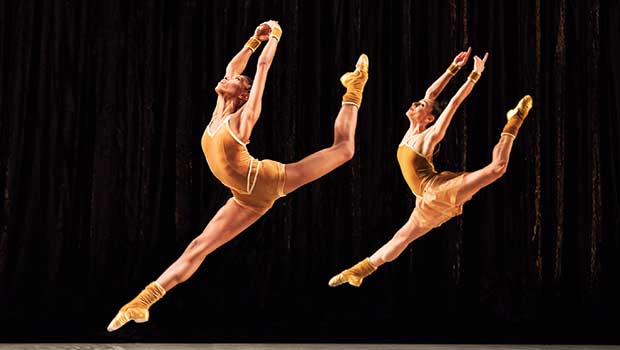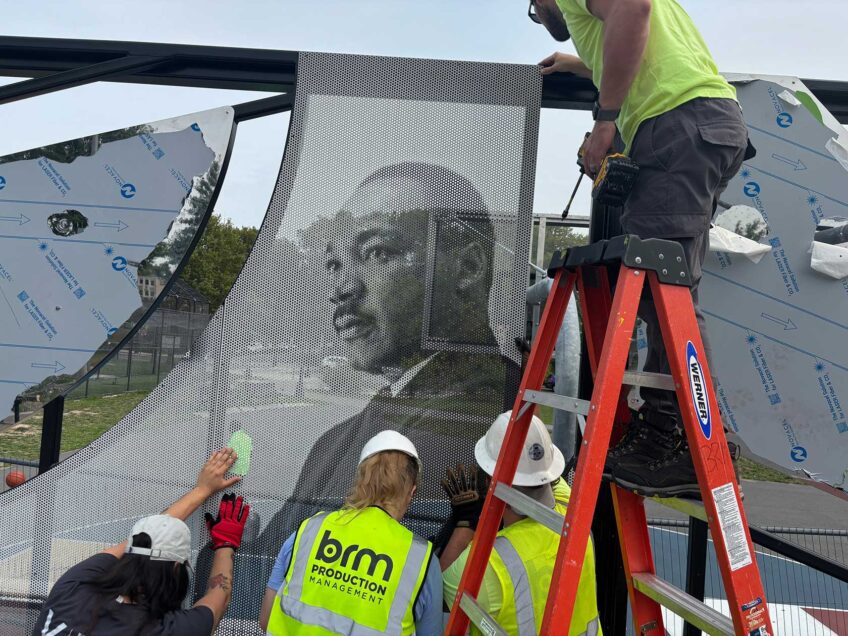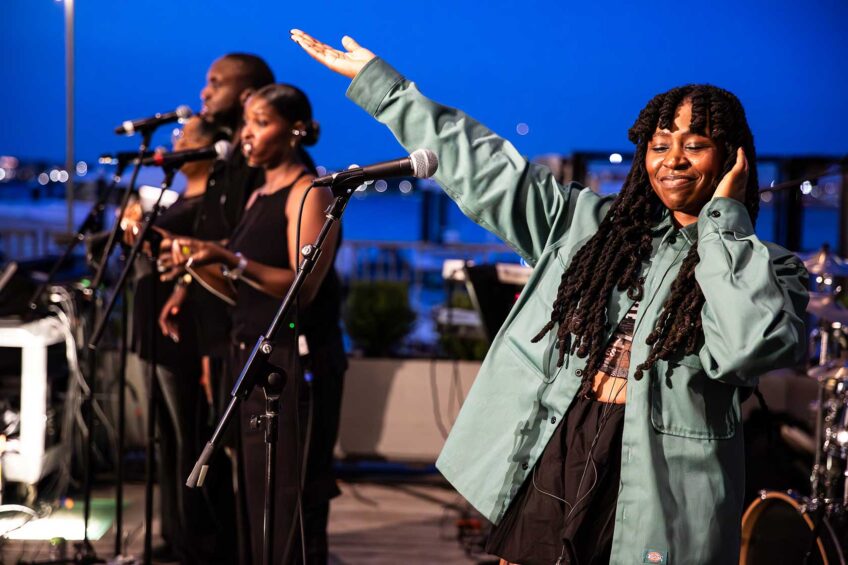
In January 1968, in a city and a nation smoldering with racial tensions, Celebrity Series of Boston first presented the Alvin Ailey American Dance Theater in Boston, at John Hancock Hall. Since then, generations of Bostonians have filled the city’s largest performance halls for annual five-show visits by the company, which leads classes in local schools in between performances of new works and such classics as Revelations, Alvin Ailey’s 1960 masterpiece celebrating the power of African-American culture and character.
This year’s residency, at the Boch Center Wang Theater through March 25, culminated in a series of special events by the company and the Celebrity Series to mark the 50th anniversary of its Boston debut.
The magnificent opening program on Thursday night began with a Boston premiere, “Members Don’t Get Weary” (2017). Ailey dancer Jamar Roberts choreographed the thrilling, 25-minute work and also designed the costumes for its five women and five men. The men’s attire resembled prison uniforms or scrubs. The women’s costumes varied — three wore fitted pants, one was in a short dress and another’s pants flowed like a gown. All were in shades of blue and purple for this work, which distills the experience of the blues.
A quotation from Ralph Ellison in the program describes the blues as “an impulse to keep the painful details and episodes of a brutal experience alive in one’s aching consciousness, to finger its jagged grain, and to transcend it.”
Embodying these words in dance, the work is set to recordings by tenor saxophone great John Coltrane featuring his compositions “Dear Lord” and “Olé,” accompanied by a drummer, bassist and pianist.
Lighting and scenic design by Brandon Stirling Baker framed the dancers in crisscrossing beams of light that highlighted their expressive hands, the contours of their bodies and the shapes of the women’s broad-brimmed hats. Dancers emerged out of the darkness and disappeared into it. Moving as if one with the music, the dancers, like the musicians, traded lines, took solos and lingered in intimate duos. As a throbbing bass solo blended into a tender sax solo by Coltrane, a woman slowly pulled the shirt off her partner, as if freeing him. The mood of the work, like its music, gradually evolved into jubilation.
Following an intermission, the mood soared even higher with a new production of Twyla Tharp’s 1983 work “The Golden Section,” to a pulsing new-wave score by David Byrne, filled with synthesized percussion and vocal scat. With shiny curtains as a backdrop and warm lighting by Jennifer Tipton, the dancers, attired by Santos Loquasto in gilded athletic outfits, looked like gods at play. Performed by six women and seven men, the choreography, too, was full of fun, evoking games and stunts as with stunning speed and verve the virtuoso dancers demonstrated the physical prowess that underpins dance as well as athletics.
Next came an eight-minute solo piece, “In/Side” a 2008 work by the company’s artistic director, Robert Battle, to a Nina Simone recording of the “Wild is the Wind.” Singing and accompanying herself on piano, Simone injects aching lyricism into the ballad by Ned Washington and Dimitri Tiomkin. Her passionate yearning was echoed in the dance solo, performed with eloquence by Jeroboam Bozeman, barefoot and attired only in a slim brief. Lighting by Burke Wilmore showed the astonishing convolutions of his body as he crawled, sprang, leapt and whirled like a leaf in the wind.
The finale for all shows was “Revelations,” created by Ailey two years after founding the company, and, like Shakespeare’s “Hamlet,” probably always on stage somewhere in the world. The three-movement work, set to spirituals Ailey heard as a child attending services at Mount Olive Baptist Church in Texas, alternates between ensemble pageantry and intimate solos and duos.
Among its intense moments is the sight of the woman in the duo to the hymn “Fix Me, Jesus,” as she turns on her tiptoes and later balances in an arc on the knee of her partner. Linda Celeste Sims and Clifton Brown excelled as the pair Thursday night.
Another episode of concentrated energy is the male solo to “I Wanna Be Ready,” performed Thursday by Glenn Allen Sims, who met its enormous demands on torso strength, rising out of a back bending curve to spring up onto his toes. And the surging musical uplift of “Sinner Man” drives a male trio piece, danced with fleet-footed power by Michael Jackson Jr., Yannick Lebrun and Michael Francis McBride. And no Easter Parade rivals the spectacle of strutting, fan-flitting ladies in wide-brimmed hats and frilly dresses that brings “Revelations” to a close.






